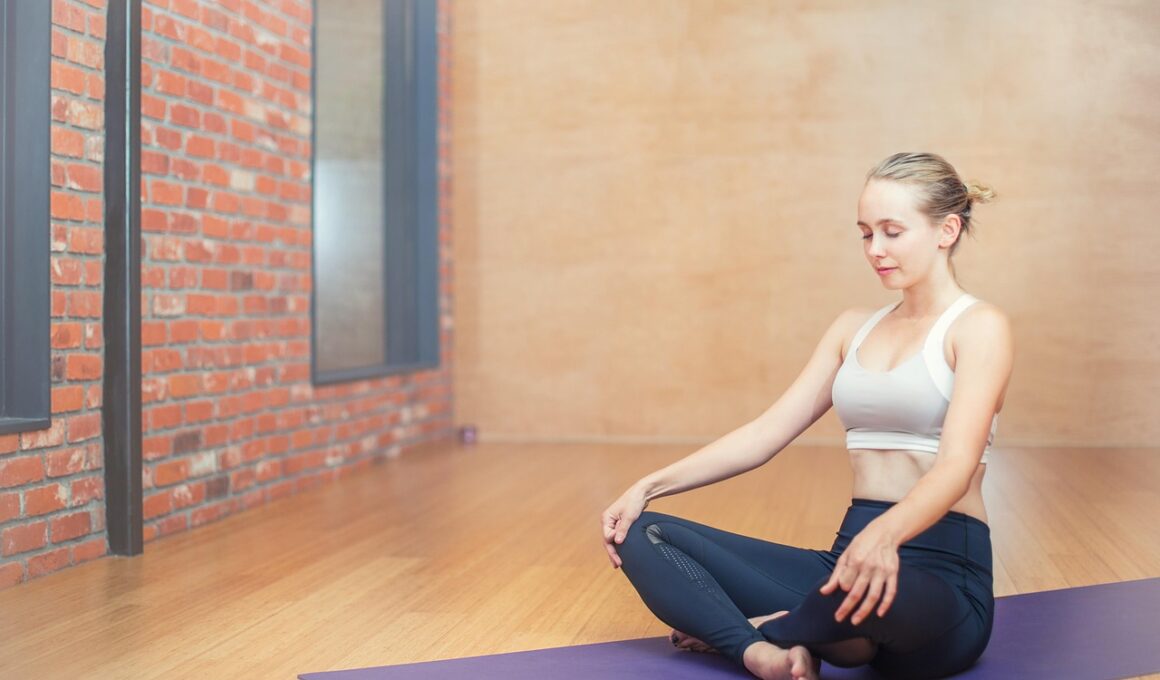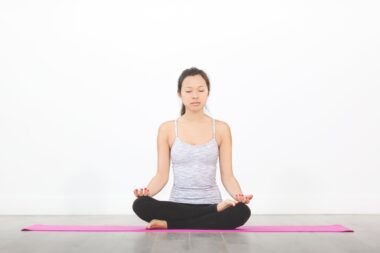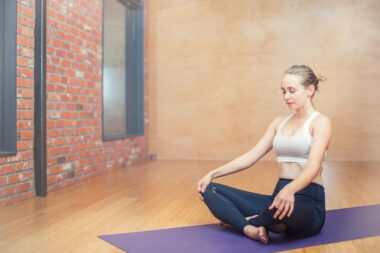Yoga and Meditation: Complementary Tools for Athletes
In the demanding world of athletics, where performance optimization is crucial, mindfulness practices like yoga and meditation offer unique benefits. These practices not only enhance physical capabilities but also significantly improve mental resilience. Engaging in yoga allows athletes to develop a deeper connection with their bodies. This helps in improving flexibility, balance, and strength, essential components of any athletic discipline. Meditation, on the other hand, aids in developing focus and concentration. The integration of both practices creates a holistic approach to training, fostering an environment where athletes can thrive. Many professional athletes endorse a regular practice of yoga and mindfulness techniques, highlighting their role in achieving peak performance during competitions. Additionally, such practices can aid in recovery and injury prevention. For athletes, the benefits are vast, including enhanced breathing techniques and stress management. Maintaining a calm mind can directly contribute to better decision-making during high-pressure situations, enabling athletes to perform at their best. By incorporating these techniques into daily routines, athletes can unlock their full potential and experience a more fulfilling overall athletic journey.
Enhancing Mental Clarity through Meditation
Meditation serves as a powerful tool for athletes seeking to enhance their mental clarity and focus. It allows athletes to clear their minds, reduce distractions, and improve their concentration on performance goals. Regular meditation practice fosters a state of mental calm, which is essential for high-stakes situations where pressure is a constant presence. Techniques such as focused attention and visualization in meditation can significantly improve an athlete’s ability to concentrate on their tasks. Studies suggest that athletes who practice meditation report greater confidence and lower performance anxiety. Such techniques lead to enhanced outcomes during competitions. Additionally, practicing mindfulness meditation has been shown to develop emotional regulation, thus providing athletes with better control over their reactions in stressful situations. This control often translates into improved performance and is crucial during emotionally charged events. With the blend of meditation techniques tailored for athletes, such as breath awareness and body scans, athletes can learn to harness their emotions effectively. Consequently, this contributes to a superior performance level, enabling them to maintain focus and poise when it matters most, making meditation an indispensable tool for aspiring athletes.
The benefits of yoga for athletes cannot be overstated, particularly when it comes to enhancing overall physical performance. Incorporating various postures, or asanas, helps improve strength, flexibility, and balance, creating a well-rounded athlete. Specific poses target muscles commonly used in sports, promoting alignment and reducing the risk of injuries. Moreover, yoga encourages breath control through pranayama practices, essential for maximizing aerobic capacity and endurance. By learning to control their breathing during intense physical exertion, athletes can improve their stamina and recovery significantly. This awareness is vital for athletes across all disciplines, supporting performance longevity and preventing fatigue. The physical benefits manifest immediately, but the long-term advantages of a consistent yoga practice are profound. Flexibility gained from yoga practice allows for greater athletic agility, while mental relaxation fosters a competitive edge. Athletes also find that yoga enhances their mental fortitude, leading to improved performance under pressure. Integrating this ancient practice into modern athletic training regimes offers a multifaceted approach to achieving excellence. As more athletes embrace yoga, its benefits for both body and mind become increasingly acknowledged within the sports community, marking its significance in athletic development.
The Connection Between Body and Mind
Understanding the connection between body and mind is critical in enhancing athletic performance. Both yoga and meditation emphasize this relationship, promoting a holistic approach to training. When athletes cultivate mindfulness through these practices, they become more in tune with their bodies, enabling them to identify and respond to their physical limits. This awareness allows for improved movement efficiency and injury prevention. Mindfulness helps athletes to listen to their bodies, recognizing signs of strain or fatigue that might go unnoticed during rigorous training sessions. By fostering this connection, athletes can refine their technique and adapt their training strategies accordingly. Moreover, this enhanced awareness contributes to better emotional regulation, allowing athletes to manage their responses during competitions. This blend of physical and mental acknowledgement encourages athletes to develop resilience and mental toughness, crucial traits for success in sports. The fluctuating pressures of competitive athletics can be overwhelming, but through mindfulness and a strong body-mind connection, athletes can navigate challenges more effectively. This approach lays the groundwork for not just succeeding in sports but for personal growth and lifelong progress in athletic endeavors.
Incorporating yoga into an athlete’s training regimen can yield tremendous benefits, particularly in refining performance. Various yoga styles, such as Hatha and Vinyasa, cater to different athletic needs, providing alternatives that boost both strength and relaxation. Coupling physical training with yoga enables athletes to develop an enhanced sense of body awareness, allowing them to fine-tune their movements. This intrinsic understanding plays a pivotal role in executing techniques proficiently, directly impacting performance. Additionally, the stress reduction benefits of yoga lead to improved recovery times, allowing athletes to train more effectively. Improved flexibility assists in executing dynamic movements effortlessly, essential for sports involving agility and endurance. Connecting breath with movement throughout yoga practice fosters a deeper understanding of relaxation, which can be transferred to athletic performance. As such, athletes report a greater sense of calm and focus during competitions. Integrating yoga into training provides ongoing benefits ranging from injury prevention to improved coordination. Furthermore, athletes experience a sense of overall well-being, significantly enhancing motivation and long-term commitment. Thus, yoga emerges as a crucial component in maximizing athletic potential and achieving a fulfilling sporting journey.
Combining Mindfulness with Athletic Performance
The integration of mindfulness into athletic training is transforming how athletes prepare for competitions. Utilizing mindfulness techniques alongside traditional training methods creates well-rounded athletes who excel physically and mentally. Combining yoga with meditation practices equips athletes with the tools necessary for cultivating mental resilience. Entering a state of mindfulness allows athletes to remain grounded during stressful competitions. This state enhances their ability to make split-second decisions essential for success. Mindful training enables athletes to study their performance patterns, allowing them to identify strengths and weaknesses. This analytical approach fosters continuous improvement, leading to enhanced outcomes in competitive situations. Furthermore, integrating these practices into training routines encourages stress management, a vital aspect of peak performance. Mindfulness training can be as straightforward as maintaining focus during practice, helping athletes develop consistent habits. Emphasizing inner awareness, athletes learn to shift their focus from external pressures to their inner experience. This shift greatly impacts their performance, enabling them to navigate competitions with clarity and calmness. As athletes gain experience in these practices, they discover innovative pathways to achieving their goals and fostering a fulfilling relationship with their sport.
Ultimately, the relationship between yoga, meditation, and athletic performance emphasizes the significance of mental well-being in sports. Numerous studies indicate that incorporating these mindfulness practices can lead to improved performance outcomes. By engaging in daily yoga or meditation routines, athletes can enhance not just their physical abilities but their mental agility as well. Techniques such as mindfulness-based stress reduction create an awareness that contributes to better goal attainment, emotional balance, and resilience. These skills allow athletes to approach their sports with a profound sense of focus and determination, vital for competitive success. Moreover, the heightened self-awareness cultivated through these practices fosters personal development and growth, not just as athletes but as individuals. Athletes who embrace these mindfulness techniques often report improved satisfaction and joy in their sporting pursuits. This enhanced quality of engagement leads to a more rewarding and enriching athletic journey. As the athletic community continues to embrace the importance of mental well-being, the integration of mindfulness practices like yoga and meditation stands as a testament to their value for holistic development. This focus on balance supports both athletic accomplishment and overall life fulfillment.
Meditation and Recovery
Meditation also proves highly beneficial during recovery periods, allowing athletes to manage stress effectively. Post-competition recovery is crucial, and incorporating meditation can significantly reduce muscle tension and promote relaxation. Practicing mindful meditation enhances the body’s healing process, fostering a connection between mind and body that supports overall well-being. Relaxation techniques in meditation encourage athletes to embrace rest, which is essential for recovery. By reducing cortisol levels through mindfulness practices, athletes can lower stress levels, allowing their body to heal more efficiently. Additionally, meditation enhances sleep quality, crucial for athletes who require restorative sleep for optimal performance. Good sleep hygiene, incorporated with meditation, translates to better energy and focus during training sessions. Recognizing the importance of these practices aids athletes in their physical and mental recovery, leading to better overall performance. Not only does it address physical fatigue, but it encourages a positive mindset, promoting resilience during challenging training phases. Incorporating meditation into recovery routines enables athletes to harmonize their body processes harmoniously. Athletes can reap substantial benefits from holistic recovery approaches utilizing mindfulness and meditation, setting the stage for future successes in their respective sports.





